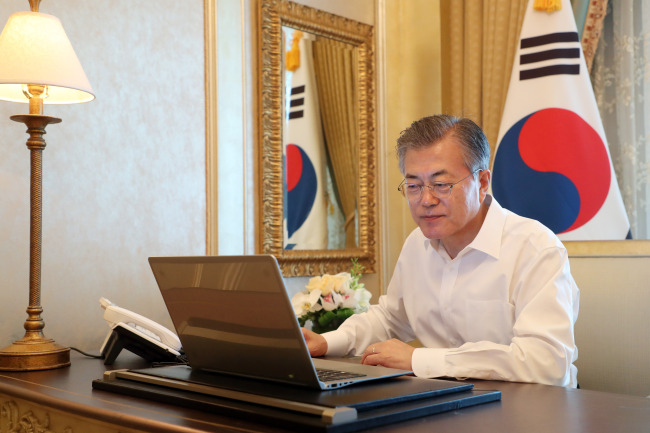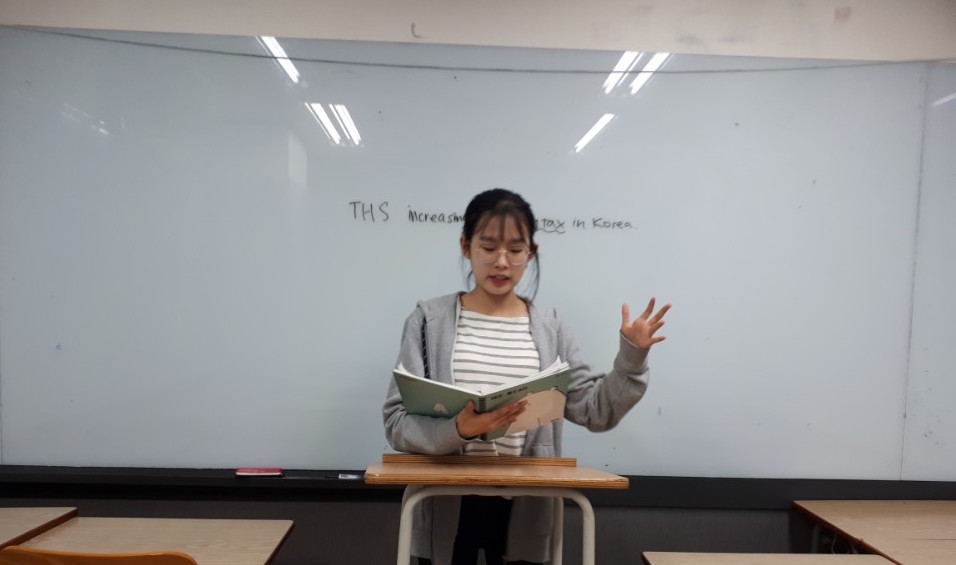
On 20th of March, the Blue House released President Moon’s proposed outline on the new Constitution. The presidential outline for constitutional amendment aims to strengthen basic rights such as the right to live, be safe and to know. It proposed to enlarge the values of democracy more into the society, by dispersing power to the regional governing body. With the growing percentage of foreigners in Korea, it also introduced changing the wording in constitution from ‘citizen’ to ‘person’ if the law concerned a natural human right.
The proposal is significant in that it is the law amendment after around 30 years. Amending the constitution has long been a popular agenda in South Korea’s politics and after going through the IMF crisis, Sewol ferry disaster and the candlelight revolution, many have been feeling that the time finally came to do so.
President Moon and the Democratic Party have been showing their stance that the constitution reform should be a democratic one -- something that citizens, themselves, want to push for. However, many debates have been going on about the controversial parts of the amendment. Some of the popular issues include the amendments on presidential term limit, dispersion of power to regional municipalities and strengthening the public purpose of land.
Upon researching on this popular and important political issue at hand, my classmates from debate class and I found the issue about the public purpose of land most interesting and opinion-diverse. We proceeded to get into sides for and against the reform. The exact wording of the motion was simplified as ‘This house supports increasing property tax in Korea’. Property tax refers to government tax on the value of owned property, usually levied on real estate.
The team for the reform continuously brought up their main stance that increasing property tax still gives people the freedom to own property while effectively carrying out wealth distribution. Mentioning that wealth distribution is a priority factor in a capitalist democratic society, they brought up their points to prove that firstly, wealth gap is a serious problem in the status quo and that more welfare from more tax on property, will help to solve it effectively. Wealth gap is something that cannot be reduced by the poor’s effort, because the gap is already too wide and the opportunities to success only go to the richer parts of the society most of the time. Especially in the context of Korea, being born with the gold spoon or the soiled spoon has long been the deciding factor for one’s success. While those people with the gold spoon continue to inherit big, influential companies, the others always face a glass ceiling when it comes to economical success. Those who possess property will continue to make profits from them and use that to invest on property and funds more and earn even more profit. Our capitalist society has gotten to the point where it is too hard for the others, the majority, to catch up. It is just like a game of monopoly where those winning with most of the land will continue to succeed. They insisted that Europe’s model of socialist economic system with more tax to have more welfare and equal starting line for all is the best way to go.
Secondly, they proved that more property tax is justified because of the principle of relations between individual and society that one’s possessions could only be there because of the existence of the society. It is only right that one gives back to society when he/she sees profit. How would you have earned the money by going to work every morning (via personal or public transport) if you did not have the infrastructure that the government built with tax? How would you have invested and grown money in the bank if the society had not been safe and bank theft happened every day?
On top of that, it was pointed out that profit through property was not effort-based. The demand for land is unbelievably high. Especially in Seoul, the capital city of South Korea, the demand for land is increasing day by day. The government needs land to build more public properties, such as the airport, with the growing population. Excluding a minority, almost every single person in Korea wants property in Seoul. However, land is too limited. This is the cause of an overwhelming increase in price of properties. Therefore, if you were to buy a plot of land for 100 million dollars and after a few years, it rose to 500 million dollars, it would be because land is limited and the demand increased. There was nothing that you did but the price has risen and 400 million dollars is purely your profit. This was seen as unfair because of the effort-based society that we live in.

On the other hand, the team against the reform held a firm stance that more tax does not equal directly to minimizing wealth gap and in contrast, actually aggravates the status quo. Firstly, the society is already balancing itself with the trickledown effect. When CEOs of companies -- often the richest people in the society -- earn financial profit from the enormous property they have, they use it to expand their business or spend it. What happens is that if they expanded their business, they would be providing more job places and more income that directly helps the poorer people. If they were to spend it, the other parts of society will earn money and they would use it to provide more opportunities to people. All in all, rather than giving a one-time financial help as welfare, this side believed that providing a long-term income was more helpful.
Secondly, they strived to prove that it was not justified to put so much property tax and that it would slow down the nation’s economic development. Most rich people buy those properties with their earned money, and thus it was believed that it would not be right to take away their effort-based profit. It was also brought up that the nation’s economic development will be halted because with more tax in general, people will lose the motivation to work or invest. If everyone were to be given equally amount of profit, whether they had sewed 4 buttons or 20 buttons, then people would lose the motivation to work hard. In reality, one of the many reasons that led to the demise of Soviet Union was its economic situation -- people did not have the motivation to get up in the morning and work because no matter what, all individuals were given the same amount of money and luxury. This would directly lead to slowing down in development and would thus be harmful.
The major clashes in the discussion were between the freedom of market and the intervention of government. While trying to find balance between the two, we came up with many questions such as ‘Is our nation ready for Europe’s model of socialist economy?’.
However, at the end of the day, we realized that the significance this constitutional amendment brings is not only about it being in constitution. It is actually more meaningful that the matter of wealth distribution and wealth gap between the rich and the poor was brought up to such recognition.

임다경 Im Dakyoung
Grade 9
Seoul Daewang Middle School

